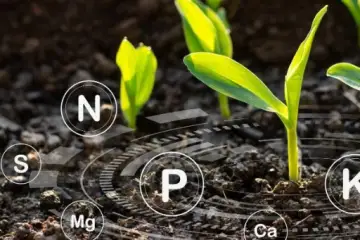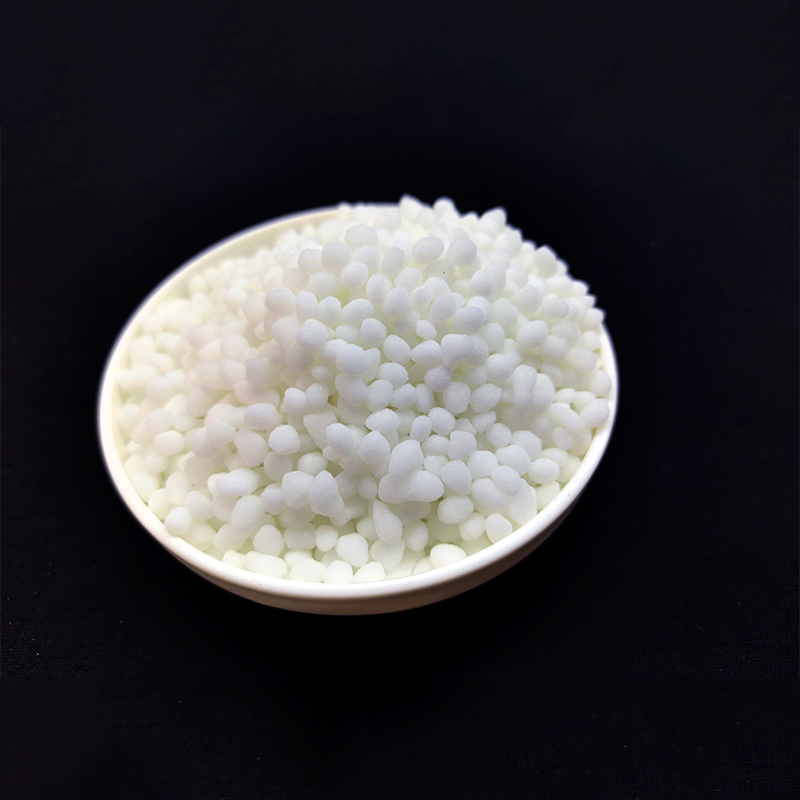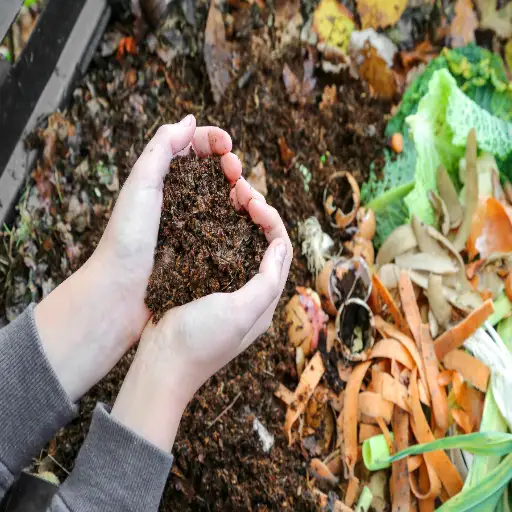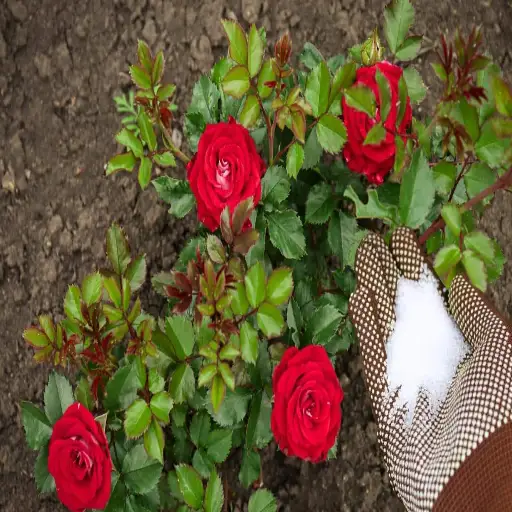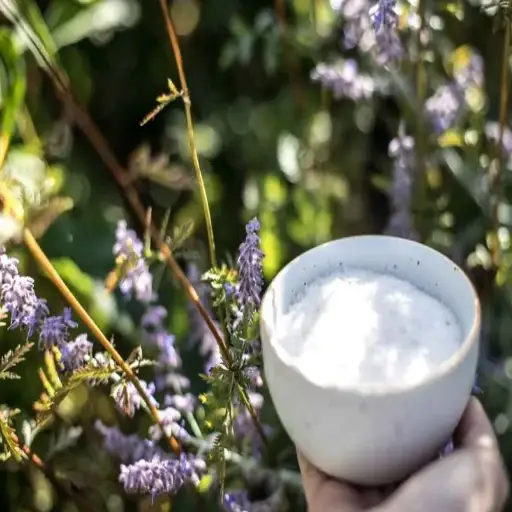Introduction to Organic Berry Fertilization
Organic berry fertilizer is the key to growing organic, natural-tasting and natural-looking berries in a smart, eco-based and sustainable way, right from the beginning. Fertilising berries, strawberries, blueberries, raspberries and blackberries with high-quality organic fertilizers will give them both the push they need to grow naturally and the extra nutrients that every berry plant, of every shape and size, need to thrive and create nutritious, beautiful and abundant berries. Organic fertilizers in berry gardening are the first important step towards creating a healthy berry garden by improving the ecological balance in your garden right from the start.
Organic methods take on particular importance when it comes to berries because they help make sure your garden is chemical-free. In addition to promoting soil health, developing beneficial microbes in the soil, and improving plant resilience, organic fertilizers ‘feed the biology in the soil instead of feeding the plants’, ensuring your garden remains healthy over the long term, according to Dr Elaine Ingham, an expert in organic gardening and founder of Soil Foodweb Inc in Corvallis, Oregon.
Using organic berry fertilizer means healthier polycultures, higher fruit yields, a safer environment for pollenating species, and gardening that is fit for an environmentalist.
Types of Organic Berry Fertilizers
No organic fertilizer for berries is the same; that’s why it’s important to pick out the best organic fertilizer to keep your berry garden happy, fresh, and productive. Many types of organic fertilizers work well for the entire berry crop, but each one targets one nutritional need.
- Fish Emulsion: A fast-acting/immediate nitrogen release, liquid fertilizer for berry plants in the growth phase. Added to your system while the plant is taking the most food, this product is derived from processed fish and is loaded with nutrients that are easily absorbed. It also contains a number of trace elements beneficial for your plants.
- Bone Meal: High in phosphorus, bone meal will encourage deep-rooted plants that flower and fruit prolifically. Phosphorus slowly leaches into the soil from the bone meal, which young plants need to develop strong root systems and form berries.
- Companion Planting: Companion plants such as chives, garlic, borage, cornflowers, and fennel repel pests and promote beneficial insects. They reduce nematode problems and help inhibit the spread of fungal infections. Mint is a good example of a windbreak crop. Directly planting garlic and strawberries together can improve the growth of strawberries.
- Trellises: Raspberry canes love supporting structures. Blackberries and blueberries are vigorous, sprawling plants. Blackberries are naturally vine-like and need support from trellises. Thornless blackberries and Alpha blueberries are best grown in single or double rows.
- Mulch: Mulch is an important aspect of berry farming. Strawberries benefit greatly from a straw mulch, while hybrids ideally require mulch every year of their productivity. Mulch serves to maintain even soil temperature and protect fruits lying on top of the soil. It also prevents weed growth and helps retain soil moisture by slowing down evaporation. After mulching the berry patch, wait for the crops to start producing berries.
When selecting a type of organic berry fertilizer, consider the type of berries you are growing:
- Strawberries benefit greatly from fertilizers high in potassium, especially during the fruiting period.
- To grow blueberries, you need fertilizers that will lower the pH of the soil, such as those that are high in sulfur.
- Raspberries and other cane berries will benefit from a balanced fertilizer that supports foliar and root development as well as flower production.
“Tailor fertilizer choices to soil tests and plant needs to optimize growth and minimize environmental impact,” says Dr. John Kirkegaard, a soil scientist at Washington State University, in Pullman. Following this advice, your berry plants will effectively get just what they need.
Appropriate organic berry fertilizer (and how to apply it) can greatly increase berry quality and yield in an organic garden.
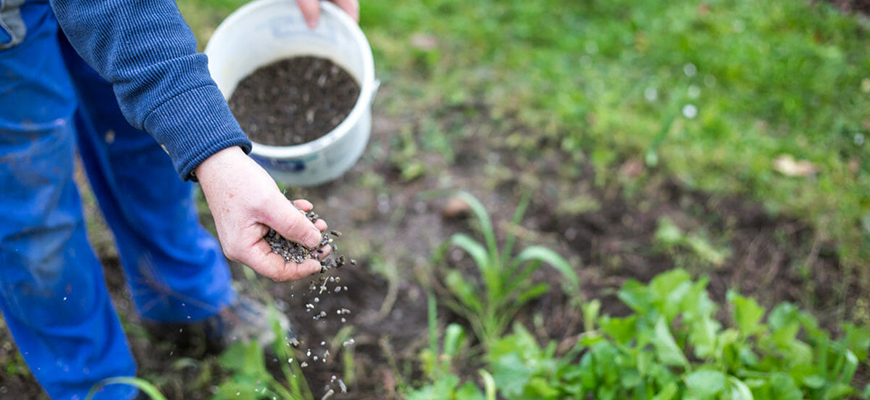
Benefits of Using Organic Fertilizers in Berry Gardens
Useing organic berry fertilizer will bring you more than just nutrients. It can improve your berry plants’ microenvironment, and do good to the whole ecology.
Better Soil Health: Organic fertilizers condition soils, enhancing air-water relationships. Aeration is essential when berry plants, whose roots are anoxic, need oxygen to thrive. Organic fertilizers also increase the organic matter in soils, increasing water retention, and enhancing soil structure, favoured by increasing populations of beneficial microorganisms. Microbiologist and ‘soil food web’ expert Dr Elaine Ingham points out that ‘healthy soil with active microbiology benefits plants by naturally increasing nutrient availability and enhancing disease resistance.
Impact on Berry Quality and Yield: Whether for fresh-eating consumption or processing, the overall quality of berries grown with berry fertilizer is going to be more robust in flavour profile and health benefits, thanks to the slow-release nature of organic nutrients that provide a steady, consistent supply of what the plants require to provide beautiful, juicy, mellow-sweet berries devoid of bitterness and acid. Applying organic fertilizer reduces the stress on plants that can result from the application of chemical fertilizers that provide a quick one-time release of nitrogen.
Environmental advantages: Any organic practises you use in your garden reduce runoff of chemicals into local water courses where they can poison wildlife and impact on the maintenance of ecosystems, they use renewable organic materials, rather than fossil-fuelled organic materials. Watering: In terms of retaining moisture in the soil, organic matter helps attract water and infuses it into the soil as it breaks down, rather than drains off depending on the nature of your soil. Pest management: Using organic methods to prevent pest attacks reduces the need for pesticides, which have many side effects and are not environmentally friendly, such as letting chickens and other creatures freely roam among your plants to help maintain a balanced ecosystem.
Sustainability: Using organic fertilizer supports sustainable practices to help maintain soil fertility and ecological health over the long term. Non-Toxicity: These products are non-toxic, meaning they are safe for the environment and also the family dog who likes to romp in the garden with the kids.
The overall organic berry fertilizer application is beneficial for the garden plant’s growth, yield, and the ecosystem, and is often chosen by gardeners who follow sustainable and ethical plant cultivation practices.
How to Apply Organic Berry Fertilizer Effectively
Organic berry fertilizer is one way to help your berry crop thrive. Without proper use of these fertilizers, you could over-fertilize, which is harmful to your berries and can even kill them. That’s why it’s so important to follow these steps in order to use organic berry fertilizer properly:
Step-by-Step Guide on Applying Organic Fertilizers:
- Timing: Apply organic fertilizer, especially if it is not made from manure, as early in the season as weather allows, and again when fruit set commences to provide nutrients when plants need them the most for growth.
Method of Application:
- For Granular Fertilizers: Spread the granular organic fertilizer around the base of the plants at least to the drip line and up to three feet out from the main stem, keeping it away from direct contact with the stems to avoid burn. Gently work the fertilizer into the top inch of soil with a spade or roto-tiller, then water thoroughly to activate the fertilizer.
- Liquid Fertilizers: Mix liquid fertilizer at the dilution rate recommended on the product, and use a watering can or sprayer to apply to soil around the drip line. Liquid fertilizer is especially useful for quick nutrient applications to give plants an added boost in their second week of development. As heat increases during the week two to three phase, try to apply early to give plants all day to absorb nutrients and reduce the risk of fungal issues that are exacerbated in cooler evenings.
Dosage: Follow the manufacturer’s instructions for application rates. Applying more than the recommended amount can lead to nutrient burn while applying too little may not provide adequate nutrients for plant growth. However, growers can also conduct a soil test to gather information on which specific nutrients their soil is lacking.
How frequently: Berries generally feed every 4-6 weeks while they are in full-growing season. But that is very general, and we have grown berries that needed a bit more weight and frequency and others that were just fine with the 4-5 week rate. So, it remains important to monitor, and, as your berries grow and thrive, make adjustments by increasing feeding occasions and the weight of fertilizer you use.
Seasonal Fertilization Strategies:
- Spring: Feed with a balanced fertilizer when the new growth begins to encourage good healthy growth and flower production.
- Summer: Once fruits commence formation, consider an application of potassium-rich fertilizer to improve fruit quality and promote continued growth.
- Fall: After harvest, apply a fertilizer with a higher amount of phosphorus to help roots develop and make it through the winter.
If you keep these rules in mind, your berries will receive optimal nutrients at the correct times of the year, resulting in better, stronger, and earlier growth, more bountiful yields, and longer life for years to come. Neither too much nor too little fertilizer can affect the performance and production of your berry garden as effectively as optimal cultural and care practices.
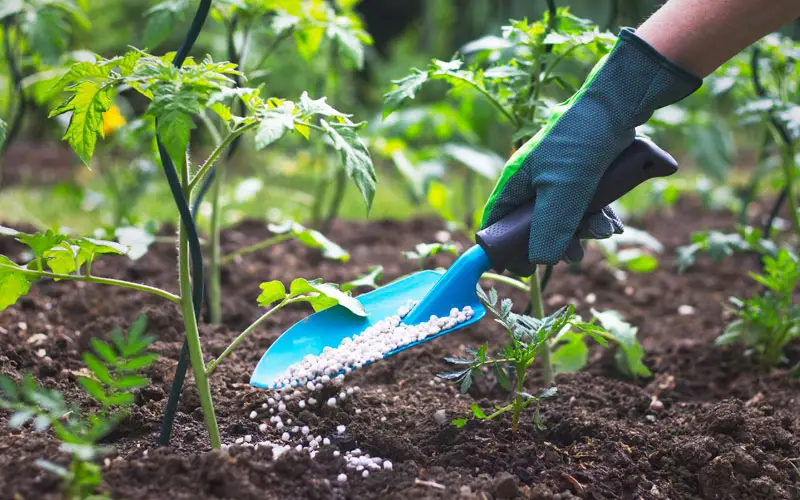
Troubleshooting Common Issues with Organic Fertilization
Fertilizer derived from organic berry forming a sustainable garden does not consist of any synthetic chemicals. This type of fertilizer is a product of decomposed organic origin. Although it is eco-friendly, there are several problems that may arise. Here are some of the common problems and their suitable solutions mentioned below.
Under-fertilization:
- Signs: Stunted growth, pale or yellowing leaves, reduced fruit size or yield.
- Solution: Either increase the frequency or quantity of applying fertilizer, or take a soil sample and have it tested for specific nutrient deficiencies so you can make adjustments.
Over-fertilization:
- Signs: Leaf scorch, overgrown foliage but no fruit; salts accumulating in the soil.
- Solution: Lessen your fertilizer application by half and double your irrigation to help leach out the extra nutrients. Going forward, stay on track with the application rates and timing.
Adjusting Fertilization Practices Based on Soil Tests and Plant Performance:
- Soil tests: Have your soil tested regularly for the elements you need to maintain optimum fertility for your crop. Check the pH and adjust your fertilizer formulation and application rate accordingly.
- Target crops: Apply fertilizer specifically for the crops you want to grow. For instance, if you’ve decided not to plant the same corn twice in a row, you might apply fertilizer to grow a legume such as soybeans that fixes nitrogen into the soil to later be used by the corn. Sunflowers can also be planted to clean up the soil.
- Plant observation: Check on your plants often for any signs of stress, such as nutrient deficiency. And change your fertilization practices to reflect the plants’ observed needs, such as adding extra potassium for fruiting plants, or extra nitrogen at times when they are growing new leaves.
Tips for Specific Scenarios:
- Mulching: Use a straw or wood chip mulch around the berry plants, which will help retain soil moisture and temperature, and can increase fertilizer uptake.
- Companion planting: Plant garlic or marigolds among your berry plants to deter pests using natural methods and reduce pesticide applications.
- Adjust pH: For berries that demand a specific pH, such as blueberries, use the corresponding sulfur or limestone as needed.
Just being proactive and observing the warning signs of chemical fertilization, and responding to them, will save your berry plants and allow you to continue yielding delicious berries.
Conclusion
To sum up, applying organic berry fertilizer brings advantages that seem in favour of the fundamental of eco-garden. In addition, adopting the organic fertilisation method makes it possible for us to have our own berries at home, friendly and safe to us, our children and grandchildren. Organic fertilizer plays the role of creating a closed loop of sustainability, which will assure us of the most healthiest soil, that will either give us a rich source of food and a beautiful garden and thus minimise our usage of chemical fertilizers.
Use of organic berry fertilizer production has many benefits, ie it helps plants become harder, high quality yield fruit, the food grown is assurity that has no harmful poison plants and toxic fertilizer, also helps create safe environment for wild animals can live happily. That’s why this style of gardening is creating safe environment for future generation.
It is obvious that organic gardening practices, particularly of berries, will dominate the future of agriculture, thanks to the awareness of environmental challenges. As people will better realise the issues surrounding environmental concerns on one hand and the significance of sustainable agricultural practices, these practices will gain popularity.
But, as gardeners, the more that we continue to explore and embrace more organic methods, the healthier our gardens will become, and the more we will contribute to the creation of a healthier planet. Organic gardening isn’t just a trend; organic gardening represents an evolution that is needed to create ecologically thriving ecosystems, now and in the future.
Here are some insightful references about using organic fertilizers:
- Oregon State University’s Research on Organic Blueberry Production – This study provides valuable insights into organic blueberry farming, particularly focusing on the best practices for soil management, fertilization, and weed control to enhance yield and reduce costs. It emphasizes the benefits of raised beds and mulching for better root growth and yield improvements.
- Nutrient Management for Blueberries – A guide from Oregon State University details how to manage nitrogen application for blueberries, taking into account the plant’s age and soil conditions. It suggests that most garden soils have sufficient phosphorus and potassium but may require nitrogen adjustments based on specific crop needs and mulching practices.
- Using Organic Nutrient Sources – Penn State University offers a guide to help growers interpret soil test recommendations when using organic nutrient sources. This guide emphasizes the variability in nutrient content in organic materials and the importance of tailored fertilization strategies based on detailed soil tests.


